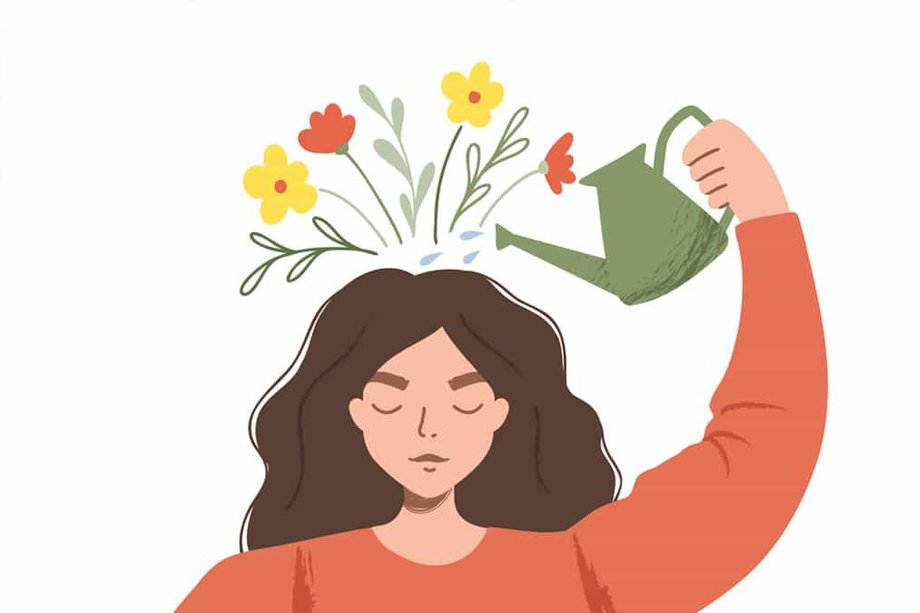Why Personal Growth Is Important For Relationship Success

Are you looking to build a successful and fulfilling relationship? If so, then understanding the importance of personal growth is crucial.
When you invest time and effort into your own personal development, you are not only benefiting yourself, but also enhancing your relationship. By focusing on self-awareness, emotional intelligence, and communication skills, you can create a strong foundation for trust and understanding.
Moreover, nurturing your personal well-being allows you to bring your best self into the relationship, while cultivating resilience ensures that both you and your partner can weather any storm.
Finally, by fostering mutual growth and support, you create a dynamic and thriving partnership.
So, if you want to pave the way for a healthy and thriving relationship, take the time to invest in your personal growth. The rewards are not only for yourself, but for your relationship as well.
Key Takeaways
- Open communication and sharing dreams, aspirations, and goals create a safe space for personal growth within a relationship.
- Supporting and encouraging each other’s ambitions fosters mutual growth and strengthens the relationship.
- Promoting personal development and valuing growth and commitment to improvement contribute to the success of the relationship.
- Pursuing hobbies, new challenges, and seeking opportunities for personal growth enhances the overall quality of the relationship.
Enhancing Self-Awareness
Enhancing self-awareness is crucial for achieving personal growth and fostering successful relationships. By increasing self-reflection and promoting self-discovery, you gain a deeper understanding of who you are as an individual.
This self-awareness allows you to identify your strengths and weaknesses, enabling you to make positive changes in your life. It also helps you recognize your emotional triggers and patterns, leading to healthier communication and conflict resolution within your relationships.
When you are self-aware, you can better understand and manage your emotions, which is essential for maintaining healthy connections with others. Developing emotional intelligence, the next step in personal growth, builds upon the foundation of self-awareness. By understanding and managing your emotions effectively, you can navigate the complexities of relationships with empathy and compassion.
Developing Emotional Intelligence
Building your emotional intelligence is crucial for fostering strong connections with others, as it allows you to empathize deeply and communicate effectively. Developing self-control and managing your emotions are key components of emotional intelligence. By cultivating self-control, you can better regulate your emotional responses, preventing impulsive reactions that may harm your relationships. Managing your emotions allows you to express yourself in a healthy and constructive manner, avoiding unnecessary conflicts and misunderstandings. To help you understand the impact of emotional intelligence, consider the following table:
| Situations | Emotional Intelligence | Lack of Emotional Intelligence |
|---|---|---|
| A friend is going through a difficult time | Offer support and understanding | Minimize their feelings and dismiss their concerns |
| Your partner expresses frustration | Listen actively and validate their emotions | Respond defensively and escalate the situation |
| A coworker disagrees with your ideas | Seek common ground and find a compromise | React with anger and refuse to consider their perspective |
By developing emotional intelligence, you can navigate these situations with grace and strengthen your relationships. Improving communication skills is the next step towards creating deeper connections.
Improving Communication Skills
To improve your ability to connect with others on a deeper level, honing your communication skills is essential. Effective communication allows you to express your thoughts and feelings clearly, while also understanding and respecting the perspectives of others.
To enhance your communication skills, consider the following:
- Active listening: Engage fully in conversations by focusing on what the other person is saying, rather than thinking about your response. Show genuine interest and empathy.
- Conflict resolution: Learn how to navigate disagreements and conflicts in a healthy and constructive manner. Develop strategies to express your needs assertively while staying open to compromise and understanding.
- Non-verbal communication: Pay attention to your body language, facial expressions, and tone of voice. These cues can convey emotions and intentions that may not be expressed through words alone.
- Effective feedback: Learn to provide constructive feedback that is specific, actionable, and non-judgmental. This promotes understanding and growth in relationships.
Improving your communication skills lays a foundation for building empathy and understanding in your relationships.
Building Empathy and Understanding
Developing strong empathy and understanding is like walking in someone else’s shoes, enabling you to see the world through their eyes and truly connect with their experiences. It is an essential aspect of personal growth that plays a significant role in relationship success.
By developing compassion, you become more attuned to the emotions and needs of your partner, fostering a deeper sense of connection and intimacy. Empathy also promotes teamwork, as it allows you to understand and appreciate your partner’s perspective, even when you may disagree. This leads to better communication and conflict resolution, creating a more harmonious and fulfilling relationship.
Nurturing personal well-being is the next crucial step on the path to relationship success, as it ensures that you have the emotional capacity to support and nurture your partner effectively.
Nurturing Personal Well-being
Take the time to prioritize your own well-being, ensuring that you have the emotional capacity to support and nurture your partner effectively. In the hustle and bustle of daily life, it’s easy to forget about taking care of ourselves. However, self-care practices are vital for personal growth and relationship success.
Here are five self-care practices to incorporate into your routine:
- Practice mindfulness and meditation to calm your mind and reduce stress.
- Engage in regular physical activity to boost your mood and increase energy levels.
- Journaling can be a powerful self-reflection exercise, helping you gain insight and clarity.
- Set boundaries and learn to say no when needed, protecting your mental and emotional well-being.
- Make time for hobbies and activities that bring you joy and fulfillment.
By nurturing your personal well-being, you create a strong foundation for a healthy relationship. As you transition into the next section about cultivating relationship resilience, remember that taking care of yourself is the first step in building a resilient bond with your partner.
Cultivating Relationship Resilience
Cultivating relationship resilience ensures that you and your partner have the strength and flexibility to weather any storms together. Building resilience is crucial for overcoming challenges that may arise in your relationship. It involves developing the ability to bounce back from setbacks and adapt to change. By nurturing personal growth and working on your own well-being, you are better equipped to handle the ups and downs that come with any partnership. Just like a strong tree can withstand strong winds, a resilient relationship can withstand the tests of time.
To illustrate the importance of building resilience, consider the following table:
| Challenges | Resilient Response |
|---|---|
| Communication issues | Open and honest dialogue |
| Trust issues | Rebuilding trust through transparency and accountability |
| External stressors | Supporting each other and seeking help when needed |
Cultivating relationship resilience allows you to face challenges head-on, ensuring a stronger bond with your partner. This sets a strong foundation for trust, which we will explore further in the next section.
Creating a Strong Foundation for Trust
Now that you’ve learned about cultivating relationship resilience, it’s time to focus on creating a strong foundation for trust. Building trust is essential for the success of any relationship, as it forms the basis for intimacy and connection.
Strengthening bonds and fostering vulnerability are key in this process. When you openly share your thoughts, feelings, and fears with your partner, you create a space where trust can flourish. It’s important to be honest, reliable, and consistent in your words and actions, as these are the building blocks of trust.
By showing your partner that they can rely on you, you’re fostering a sense of security and safety within the relationship. This will allow both of you to feel comfortable being vulnerable and open with each other.
By creating a strong foundation of trust, you’re setting the stage for fostering mutual growth and support.
Fostering Mutual Growth and Support
To truly foster mutual growth and support in your relationship, it’s crucial that you embrace vulnerability and encourage your partner to do the same.
By creating a safe space for open communication, you can encourage each other to share your dreams, aspirations, and goals.
Encouraging aspirations means actively supporting and cheering on your partner’s ambitions, whether they’re personal or professional.
By promoting personal development, you’re showing that you value growth and are committed to being the best version of yourselves. This can involve encouraging each other to pursue hobbies, take on new challenges, or seek out opportunities for personal growth.
By fostering an environment of mutual growth and support, you and your partner can strengthen your relationship and create a foundation for long-term success.
Frequently Asked Questions
How can personal growth enhance self-awareness in a relationship?
Personal growth can enhance self-awareness in a relationship by promoting self-reflection and mindfulness. By focusing on personal development, you become more conscious of your thoughts, emotions, and actions, allowing for better communication and understanding with your partner.
What are some strategies for developing emotional intelligence to improve relationship success?
To improve relationship success, develop emotional intelligence by practicing active listening, empathy, and communication skills. Engage in self-reflection to understand your emotions and triggers. These strategies promote understanding and connection with your partner.
How can improving communication skills positively impact a relationship?
Improving communication skills positively impacts relationships by enhancing understanding and connection. By improving listening skills, you can better understand your partner’s needs and feelings. Cultivating trust and openness fosters a healthier and more fulfilling relationship.
What are some ways to build empathy and understanding in a relationship?
To build empathy and understanding in a relationship, actively listen to your partner, show empathy towards their feelings, and be open and vulnerable about your own emotions. This helps in building trust and encouraging vulnerability.
How does nurturing personal well-being contribute to relationship success?
Nurturing your personal well-being through self care benefits your relationship success. By prioritizing individual fulfillment, you can bring a stronger and happier self into the relationship, creating a more fulfilling and harmonious partnership.










